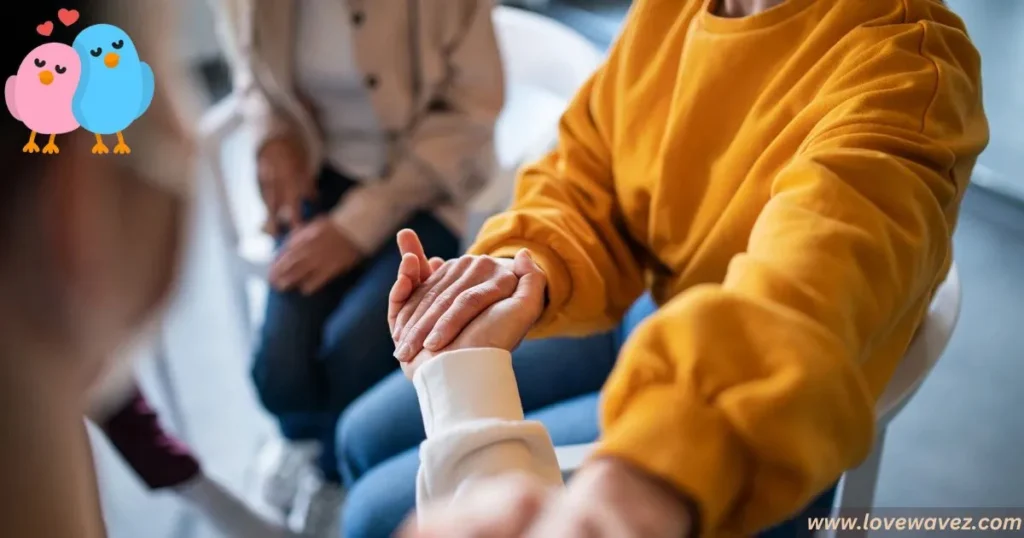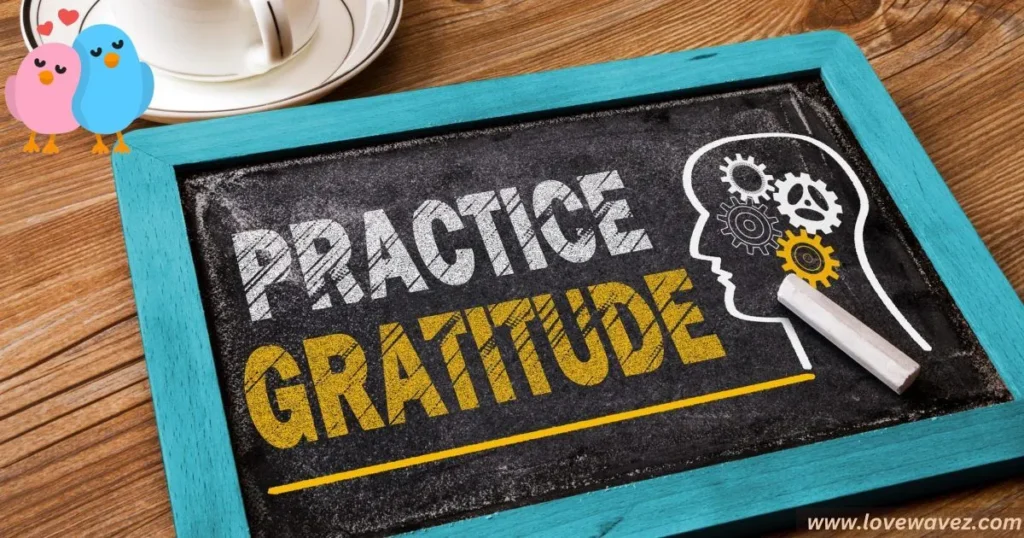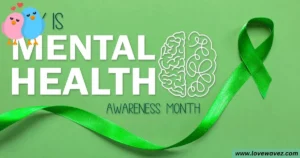“Words have power; choose them carefully, especially when speaking to those you love.”
When emotional and physical pain in a marriage go unaddressed, it can leave deep scars that impact both partners. Quotes about a husband hurting his wife offer a lens into the complexities of such relationships, reflecting the emotional toll and the struggle for resolution.
These quotes can serve as both a mirror and a guide, shedding light on the pain inflicted and the path towards healing. Understanding these dynamics through the lens of words can offer insights into how to address and heal from such wounds.
1. The Impact of Words: Emotional Wounds
Words can deeply affect our emotional state. A husband’s harsh words or insensitive comments can inflict pain that lingers long after the conversation ends. This outline explores the emotional wounds caused by verbal abuse.
- Words can deeply hurt and leave lasting scars.
- Emotional pain often goes unnoticed by others.
- Verbal abuse can be as damaging as physical harm.
- Words have the power to destroy self-esteem.
- Repeated harsh words can lead to chronic emotional distress.
- Emotional wounds might not be visible but are very real.
- Healing from verbal abuse requires time and support.
- Apologies can help, but actions must follow.

- Therapy can be crucial for overcoming verbal abuse.
- Understanding and empathy are essential for healing.
- Communication issues often stem from underlying problems.
- Active listening can prevent misunderstandings.
- Building a support network can aid recovery.
- Self-care is vital in healing emotional wounds.
- Self-worth should be reinforced through positive experiences.
- Avoiding negative self-talk can help in recovery.
- Establishing healthy boundaries is crucial.
- Forgiveness is part of the healing process but shouldn’t be rushed.
- Counseling can provide tools for effective communication.
- Recognizing toxic patterns can prevent future issues.
- Addressing emotional wounds can improve relationship dynamics.
- Expressing feelings openly can prevent buildup of resentment.
- Understanding the impact of tone and context is important.
- Validation of feelings is crucial in emotional recovery.
- Avoiding blame can lead to constructive dialogue.
- Setting boundaries can protect mental health.
- Patience is necessary when dealing with emotional healing.
- Support groups can provide a sense of community.
- Mutual respect should be a foundation of communication.
- Therapeutic interventions can address underlying issues.
- Acknowledging pain can help in moving forward.
- Positive reinforcement can counteract verbal abuse effects.
- Forgiveness should not be forced or used manipulatively.
- Trust-building is key in healing emotional wounds.
- Avoiding defensiveness can foster open communication.
- Recognizing the impact of past traumas on current behavior.
- Empathy should be practiced in communication.
- Learning from past mistakes can lead to growth.

- Encouraging positive behavior in communication.
- Mutual understanding can help in resolving conflicts.
2. Physical Abuse: The Hidden Pain
Physical abuse is a stark and painful reality for some marriages. This section discusses the impact of physical violence, including the immediate and long-term effects on the victim’s well-being.
- Physical abuse can lead to serious injuries.
- The immediate impact includes pain and trauma.
- Long-term effects can involve chronic health issues.
- Victims may suffer from emotional trauma.

- Fear and anxiety often accompany physical abuse.
- Isolation from friends and family can result.
- Self-blame is common among victims.
- Counseling is essential for recovery.
- Medical attention is crucial for physical injuries.
- Safety plans are necessary for protection.
- Legal action might be needed to ensure safety.
- Support services can aid in recovery.
- Empowerment through support groups is important.
- Education about rights and resources is vital.
- Victims should seek professional help for healing.
- Rebuilding self-esteem is part of recovery.
- Communication about abuse can be difficult but necessary.
- Forgiveness should not come at the cost of safety.
- Healthy relationships should be modeled for recovery.
- Boundaries need to be established and respected.
- Relocation might be necessary for safety.
- Legal advice can help in navigating the system.
- Community resources can provide additional support.
- Economic independence can aid in leaving abusive situations.
- Therapeutic support helps in processing trauma.
- Understanding the cycle of abuse can aid prevention.
- Personal safety plans should be in place.
- Family support can be crucial in recovery.

- Recognizing abusive behavior is key to prevention.
- Education on healthy relationships is essential.
- Breaking the silence can lead to intervention.
- Victim advocacy can provide necessary support.
- Trusting one’s instincts is important for safety.
- Seeking therapy can aid emotional healing.
- Developing coping strategies is necessary.
- Building a support network helps in recovery.
- Legal protection may be required.
- Rebuilding trust takes time and effort.
- Understanding the impact of trauma on mental health.
- Avoiding contact with the abuser is often necessary.
3. Psychological Manipulation: Subtle Control
Psychological manipulation is often less visible but equally damaging. This section explores how manipulative behaviors can undermine a partner’s self-esteem and autonomy.
- Psychological manipulation can undermine self-worth.
- Manipulation often involves gaslighting.
- Victims may experience confusion and self-doubt.
- Manipulative behaviors include constant criticism.
- Emotional blackmail is a common tactic.

- Victims might feel trapped and powerless.
- Isolation from support systems is common.
- Control over finances can be a form of manipulation.
- Threats and intimidation are used to exert control.
- Trust issues can arise from manipulation.
- Victims may develop depression or anxiety.
- Therapy can help in recognizing and dealing with manipulation.
- Educating oneself about manipulation tactics is important.
- Setting boundaries is crucial for mental health.
- Self-assertiveness can combat manipulative behavior.
- Building self-esteem helps in resisting manipulation.
- Seeking support from friends and family is vital.
- Developing coping strategies can aid in recovery.
- Avoiding self-blame is essential.
- Understanding manipulation tactics can aid in prevention.
- Communication skills can help in addressing issues.
- Therapeutic interventions can provide necessary tools.
- Recognizing patterns of behavior is key.
- Self-care practices can help in maintaining mental health.
- Establishing personal goals can foster independence.
- Building a support network aids in recovery.
- Avoiding isolation from others is important.
- Developing trust in oneself can counter manipulation.

- Understanding the impact of manipulation on mental health.
- Seeking professional help is crucial.
- Setting clear limits can protect personal well-being.
- Recognizing emotional abuse as part of manipulation.
- Creating a safety plan can be necessary.
- Developing self-confidence is essential.
- Addressing past traumas can aid in recovery.
- Practicing self-compassion helps in healing.
- Avoiding contact with manipulative individuals.
- Recognizing the need for change is vital.
- Seeking legal advice if necessary.
- Fostering healthy relationships can aid in recovery.
Thank You for Loving Me Quotes to Show Appreciation
4. Coping Strategies: Finding Peace
Coping with the hurt caused by a husband involves finding ways to manage and eventually heal from the emotional and physical pain. This section outlines various coping strategies that can aid in the healing process.
- Seeking therapy can provide professional guidance.

- Developing a support network is crucial.
- Practicing self-care helps in emotional recovery.
- Journaling can aid in processing emotions.
- Engaging in hobbies provides a positive distraction.
- Physical activity can improve mental well-being.
- Mindfulness and meditation help in reducing stress.
- Establishing healthy boundaries is essential.
- Practicing relaxation techniques can alleviate anxiety.
- Building self-esteem through positive affirmations.
- Joining support groups can offer community support.
- Setting personal goals fosters a sense of purpose.
- Developing coping mechanisms for stress.
- Educating oneself about emotional abuse and recovery.
- Creating a safety plan if necessary.
- Seeking legal advice if required.
- Avoiding negative influences can aid in recovery.
- Practicing self-compassion helps in healing.
- Exploring new interests can provide a sense of fulfillment.
- Maintaining a healthy lifestyle supports mental health.
- Building resilience through positive experiences.
- Seeking spiritual support if relevant.
- Addressing underlying issues with professional help.
- Understanding the healing process takes time.
- Fostering positive relationships can aid recovery.
- Setting realistic expectations for oneself.
- Avoiding self-criticism and focusing on progress.
- Celebrating small victories in recovery.
- Maintaining a balanced routine supports mental health.
- Seeking professional counseling for long-term healing.
- Participating in community activities for support.
- Creating a positive environment at home.
- Engaging in creative expression can be therapeutic.
- Understanding and accepting emotions helps in processing.
- Building a new support system if needed.
- Practicing gratitude to shift focus to positives.

- Developing new skills for personal growth.
- Avoiding isolation and seeking social connections.
- Seeking ongoing support as needed.
- Recognizing progress and adjusting coping strategies.
5. Seeking Help: When to Reach Out
Knowing when and how to seek help is crucial in dealing with the aftermath of a hurtful relationship. This section provides guidance on seeking professional and personal help.
- Recognize the signs that help is needed.
- Consulting a therapist can provide professional support.

- Reaching out to support groups offers community assistance.
- Seeking legal advice if the situation involves abuse.
- Talking to trusted friends can provide immediate support.
- Exploring counseling services for couples.
- Engaging with community resources for additional help.
- Understanding the importance of timely intervention.
- Building a safety plan if necessary.
- Finding a support network tailored to your needs.
- Recognizing the need for change in the relationship.
- Accessing crisis intervention services if required.
- Seeking medical attention for physical injuries.
- Understanding the types of help available.
- Consulting with a legal professional for protective measures.
- Exploring online resources for support and education.
- Identifying local organizations that offer assistance.
- Building a support team for comprehensive care.
- Understanding the role of advocacy services.
- Seeking help from religious or spiritual leaders if applicable.
- Using helplines for immediate support.
- Attending workshops on relationship issues and recovery.
- Exploring options for financial assistance if needed.
- Finding support through social services.
- Understanding the confidentiality of professional help.
- Seeking family therapy if relevant.
- Exploring options for temporary housing if necessary.
- Utilizing online forums for shared experiences.
- Finding resources for specific needs (e.g., child support).
- Consulting with a counselor for personal growth.
- Building relationships with supportive professionals.
- Recognizing the need for ongoing support.
- Seeking educational resources for understanding abuse.
- Understanding the process of legal action.
- Building self-advocacy skills.

- Accessing emergency services in critical situations.
- Engaging in community outreach programs.
- Using therapy resources for emotional healing.
- Recognizing the importance of follow-up care.
- Seeking support for long-term recovery.
6. Healing and Recovery: The Path Forward
Healing from the pain caused by a husband involves both emotional and practical steps. This section focuses on the journey towards recovery and the ways to rebuild one’s life after experiencing hurt.
- Acknowledging the pain is the first step in healing.
- Creating a healing plan can provide direction.

- Engaging in therapy aids in emotional recovery.
- Building self-confidence helps in moving forward.
- Setting achievable goals supports personal growth.
- Exploring new opportunities can foster renewal.
- Developing a support system for ongoing assistance.
- Practicing self-care enhances emotional well-being.
- Understanding the recovery process takes time.
- Maintaining healthy boundaries aids in rebuilding.
- Forgiving oneself is crucial for personal growth.
- Rebuilding trust in oneself and others.
- Engaging in positive activities supports recovery.
- Developing new coping strategies for future challenges.
- Celebrating progress helps in maintaining motivation.
- Building resilience through overcoming challenges.
- Exploring personal interests can provide fulfillment.
- Fostering positive relationships aids in emotional recovery.
- Seeking professional help for ongoing issues.
- Maintaining a balanced lifestyle supports overall health.
- Practicing mindfulness helps in emotional stability.
- Setting personal boundaries is crucial.
- Exploring spiritual growth if relevant.
- Building new skills for personal development.
- Addressing any residual issues from the past.
- Seeking support from community resources.
- Understanding the importance of self-compassion.
- Creating a positive environment at home.
- Engaging in meaningful activities supports well-being.
- Building a new support network if needed.
- Developing a healthy routine for stability.
- Setting personal goals for continued growth.
- Acknowledging and addressing any setbacks.
- Focusing on personal achievements.
- Practicing gratitude for positive aspects of life.

- Seeking guidance from mentors or role models.
- Maintaining open communication with supportive individuals.
- Exploring new ways to connect with others.
- Understanding that healing is a process.
- Embracing personal growth and change.
7. Moving Forward: Rebuilding Trust and Confidence
After experiencing hurt, rebuilding trust and confidence is crucial for moving forward. This section provides insights into rebuilding trust and fostering self-confidence after the damage has been done.
- Acknowledging past mistakes is the first step.
- Communicating openly about feelings and concerns.
- Building new trust through consistent actions.
- Seeking forgiveness where appropriate.

- Practicing self-compassion to rebuild self-worth.
- Setting clear boundaries to protect personal well-being.
- Engaging in therapy to address trust issues.
- Developing a personal growth plan.
- Fostering positive relationships to build confidence.
- Celebrating achievements to boost self-esteem.
- Understanding the role of time in rebuilding trust.
- Developing new coping skills for emotional stability.
- Engaging in self-care activities to support mental health.
- Maintaining consistent behavior to rebuild trust.
- Seeking support from trusted individuals.
- Avoiding negative self-talk and focusing on positives.
- Participating in activities that enhance self-worth.
- Building resilience through overcoming challenges.
- Setting realistic goals for personal development.
- Developing a supportive network for ongoing support.
- Exploring new interests to foster self-confidence.
- Addressing underlying issues with professional help.
- Practicing patience during the rebuilding process.
- Acknowledging progress and celebrating milestones.
- Maintaining a balanced lifestyle for overall health.
- Engaging in meaningful connections with others.
- Building trust through transparency and honesty.
- Seeking professional advice for trust issues.
- Understanding the importance of self-reliance.
- Developing a positive mindset towards personal growth.
- Creating a plan for continued development.
- Fostering a sense of empowerment through achievements.
- Building new habits for positive behavior.
- Maintaining open communication with supportive individuals.
- Seeking ongoing support as needed.
- Understanding the impact of past experiences.
- Focusing on personal strengths and capabilities.
- Engaging in self-reflection for personal insight.
- Setting boundaries with those who undermine confidence.
- Embracing personal growth and new opportunities.

Get One Step For More Infor:
www.lovewavez.com
Conclusion
Quotes about a husband hurting his wife offer a profound look into the challenges faced in such relationships. They reflect the pain and the journey toward healing, emphasizing the need for emotional support, understanding, and professional help.
By addressing the underlying issues and seeking appropriate assistance, individuals can move towards recovery and build healthier, more respectful relationships. Remember, healing is a journey, and each step taken towards understanding and support brings you closer to a better future.

Hi! I’m Lauren Reynolds, here to share insights on love, intimacy, and building strong relationships. Let’s create lasting love stories together!












